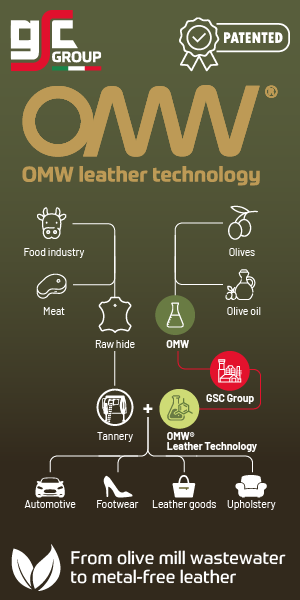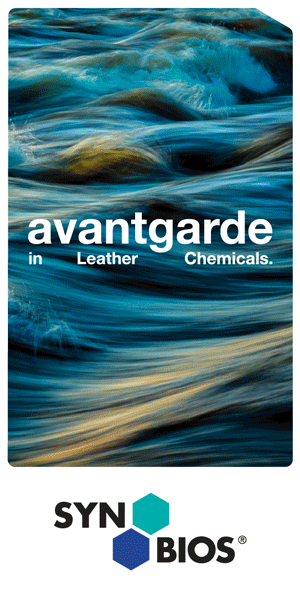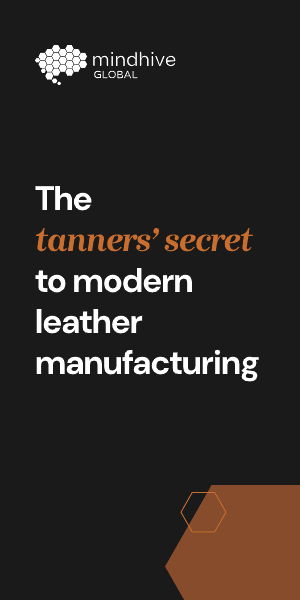Too cool for fast fashion

Leather jackets seem popular again, which has come as no surprise to the founder of Boda Skins, Nathan Alexander. The Manchester-based designer describes long-lasting jackets made from nappa and shearling as “the epitome of cool”. To extend the life of its products even further, the brand recently introduced an interesting programme for repairing and reselling used items, and reusing the material from any jackets that can no longer be worn.
Manchester-based clothing brand Boda Skins has launched a circular idea that involves taking back old leather jackets from customers for repair and resale. Material from any jacket beyond repair will go towards making multi-purpose bags. It will then use these bags as packaging for sending out new jackets; this is part of a wider zero-waste packaging strategy.
Boda Skins is the brainchild of designer and chief executive, Nathan Alexander, who has never hidden his deep dislike of fast fashion. His belief is that people should have fewer, better clothes in their wardrobes. In this context, he describes leather jackets as “a brilliant piece of fashion to own”. They are sustainable items, can be worn with anything and are easy to care for, he says, adding that they are “the epitome of cool”. His brand is focused on offering clothes that will stand the test of time, garments that people will forge a lasting relationship with, fall in love with and “wear to death”.
At that point, it now wants customers to sell their beloved leather jackets back to the brand. At the start of 2021, Boda Skins launched a programme inviting people to send their old jackets back to the company. Managing director, Ashley Waring, explains that all customers need to do is get in touch and give their name, the order number they had when buying their old jacket and their assessment of the condition of the item; Boda will give an estimated credit value for each item. “Once we receive the jackets,” she continues, “and have checked them over, clients will receive the credit, which they can use to purchase another item from our website.”
What the company wants to prevent is jackets it has made hanging at the back of a wardrobe for years gathering dust. Any repair or restoration the garment needs will take place at Boda’s headquarters in Manchester, after which it will become available for sale in a special ‘pre-loved’ section of the brand’s range. The company says it will donate the proceeds from sales of these pre-loved jackets to charity. Material from any jackets that are beyond repair will become part of new multifunctional bags, cutting down on waste and also on packaging.
For Ms Waring, this is another way for Boda Skins to extend the life of its products. Longevity is not something that concerns her; she says the nappa and shearling jackets and coats the company produces can last a lifetime, growing only more beautiful with age. However, she recognises that people sometimes like a change. Not everybody will want to wear the same jacket for their whole life, she says, adding: “But it doesn’t need to be thrown away. Our jackets are investment pieces, to be passed through generations.”
Boda Skins sources material globally, with much of its nappa leather coming from Turkey, but also from Pakistan and India. Some of its shearling material comes from Australia. It is vociferous in its support of suppliers’ efforts to become as sustainable as possible, signing up for accreditation from multi-stakeholder body the Leather Working Group. One leather supplier in India has done this recently, following the inauguration of its newly built, sustainability-focused factory. Boda Skins likes that it is able to put a by-product from the food industry to such good use; it wants nothing valuable to go to waste.
We heard from a number of leather apparel brands in 2020 that leather jackets had become particularly popular again. Boda Skins believes style and longevity are at the core of this, at least as far as its customers are concerned. Even during the most restrictive periods of 2020, with long lockdowns in place in key markets such as Germany and the UK, it registered 20% growth year on year, despite delays and challenges in managing a global supply chain. “Customers are really supportive of slow fashion,” Ashley Waring says, “We utilise the skins to make quality products that will last. The consumer respects this.”
The company also managed to raise £500,000 in new funding last year and has said it intends to use the cash injection to expand its product range and core technology, but also to accelerate growth in Asia. “We’ve had increased demand from Asia but haven’t launched fully there yet,” explains founder, Nathan Alexander. “That will be our main focus for 2021.”
All credits: Boda Skins




























